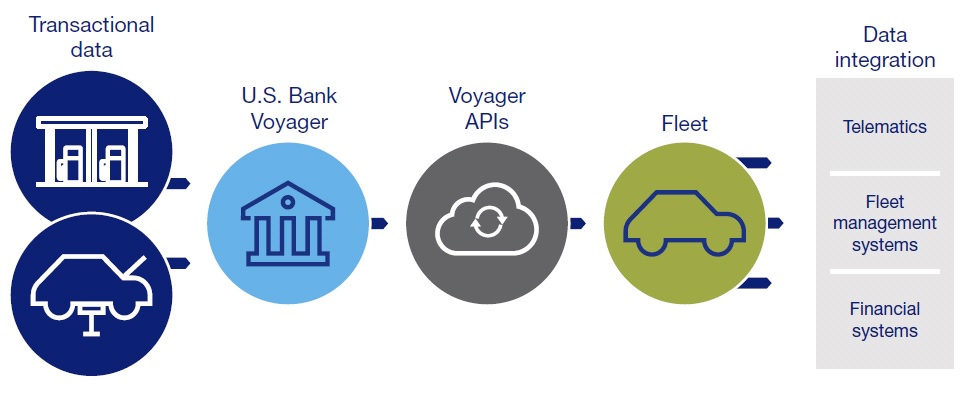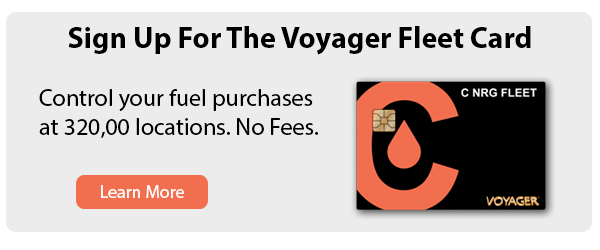For a fleet manager, data is everything. Data is the means by which a manager is able to assess the health of their fleet, and ensure that everything is properly coordinated. For instance, that the purchase reports match the data logged into accounting. However, if that data is to coordinate across platforms then it is the duty of a fleet manager and his or her employees to transfer it often via manual data entry which is time consuming. Not to mention it only takes one error to throw an entire data set off.
Fortunately, the Voyager fuel card now has the ability to send API data (application programming interface) that’ll transfer and coordinate all of your data for you.
Why You Should Use Voyager Fuel Card API Data
With Voyager fuel card you get online reporting called Fleet Commander Online which can create just about any fuel report you can imagine. You also probably use a GPS system to track your trucks and accounting software to enter all your financial data.
Currently without API integration you would have to download fuel reports from Fleet Commander Online and import these reporting into your GPS or accounting software.
With Voyager fuel card API integrated this fuel card data is automatically pushed from your Voyager to your GPS system and accounting software. So there is no more manual data entry. Just sign in and view your data.

How To Start Using Voyager Fuel Card API Data
To access this new interface all you need is a Voyager Fuel Card. Once you have an Voyager fuel card you can contact your Voyager fuel card supplier to work directly with Voyager headquarters and your GPS and/or accounting software provider to get the integration working.
GPS Integration
We briefly mentioned earlier that it was possible to integrate Voyager’s API with a fleet’s GPS system and in what is to follow we’ll discuss why this is important. In years to come the likelihood of DOT (Dept. of Transportation) requiring that all fleets to make use of a GPS is quite high. Reason being that it is through the data collected by these systems that DOT will conduct investigations/inspections. By integrating your fuel card with your GPS system, reporting to the DOT is made simple as your mileage, interstate travel and your fuel card information is all in one place. The same goes when filing for IFTA as well, which asks for both mileage and interstate travel in tandem with fuel use to determine your taxes owed.
However, the benefits of GPS integration go beyond merely reporting. By integrating your GPS system with your fuel card data, you also increase your level of control. As you are now given access to data logged between fuel-ups i.e. miles traveled and location in addition to the control already available at the pump.
Accounting Integration
As mentioned at the top of this posting, one of the biggest obstacles a company faces when attempting to coordinate across platforms/departments is the amount of manual labor needed in order to do so. Transferring data from one platform to another can take hours, days even, and in order to be done right requires superhuman precision. So in short, using Voyager’s API to integrate your fuel card data with your accounting software will save you both time and energy.

